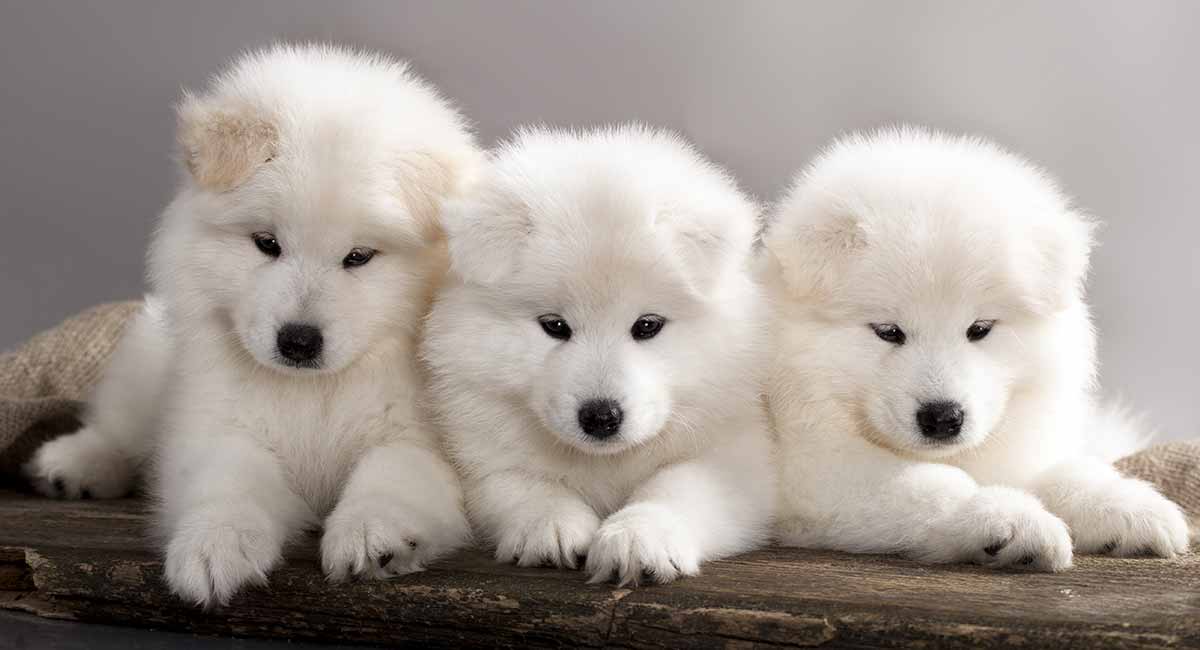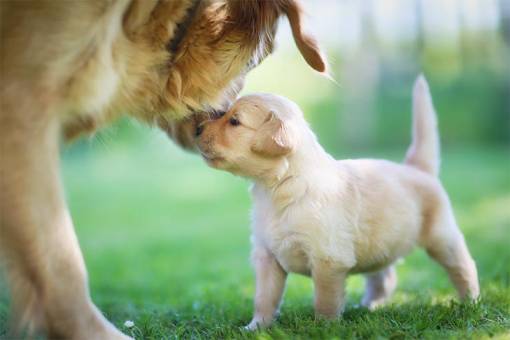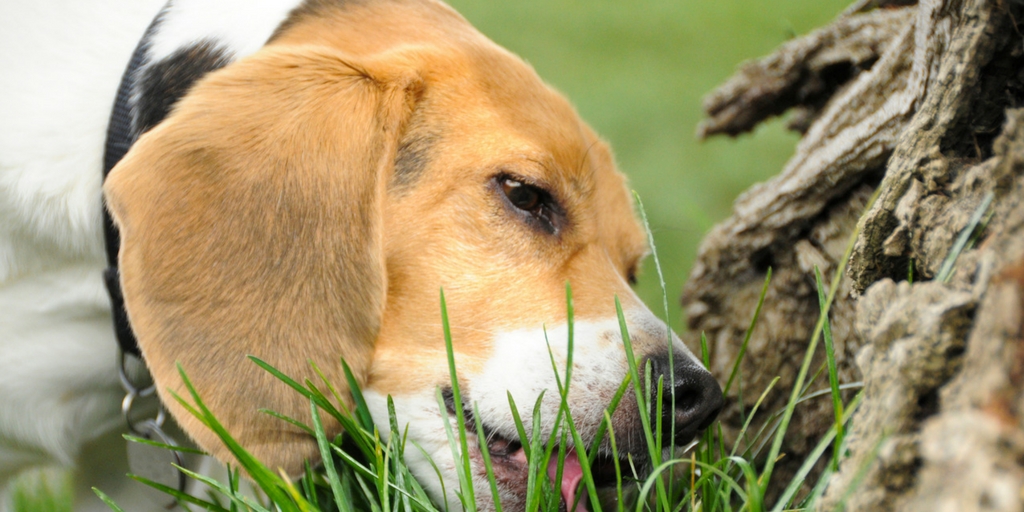Are you familiar with the Schnoodle? Are you wondering what type of dog this is? What do they look like? If you’re asking these questions, then you’ve come to the right place! If you’re considering adding a Schnoodle to your family, we’ve put together some information to help you learn more about these wonderful dogs!
Connect with a verified veterinarian in minutes. Licensed vets are available 24/7 to answer your questions. No need to worry about your furry family member.
In this article, we’ll review what a Schnoodle is, review their characteristics & personalities, and more! Let’s get started!
What is a Schnoodle?
The Schnoodle is a hybrid dog that is the result of crossing a purebred Poodle with a purebred Schnauzer. While these are considered “designer” dogs, they’ve become extremely popular with everyone who loves dogs!
The Schnauzer parent is a terrier, and these dogs are known for being very intelligent, stubborn, independent and very loyal. The Poodle parent is also very intelligent, very active and comes with a coat that needs a lot of care. And keep in mind that the Poodle & Schnauzer parents may be miniature, standard or even giant, which means the hybrid puppies can vary greatly in size.
The resulting puppies may more resemble one parent over the other, and it’s almost impossible to predict how they will look, their temperaments, etc. Even puppies from the same litter can vary greatly, which means you’ll be getting a very unique, loving dog no matter what!
Schnoodle Characteristics
A Schnoodle can come in various sizes depending on their parents’ size. If your dog is the result of a mix between a Giant Schnauzer and a Standard Poodle, expect your fur baby to be large. If your fur baby is from the mix of a Standard Schnauzer and a Standard Poodle, then he’ll be a medium size, and so on. Generally speaking, the size of Schnoodles can be broken down this way:
- Toy Schnoodles: stand about 10-12 inches, and can weigh from 6-10 lbs.
- Miniature Schnoodles: stand about 12-15 inches, and can weigh from 13-20 lbs.
- Standard Schnoodles: stand about 15-26 inches, and can weigh from 20-75 lbs.
When it comes to their coats, Schnooldes do not shed very much, but they must be clipped or trimmed on a regular basis. Your Schnoodle, if he is a first-generation puppy, may have very soft, wavy hair. Second generation puppies may have a wirier coat like their Schnauzer parent.
Schnoodles come in several adorable colors including:
- Gray
- Black
- Silver
- Brown
- White
- Apricot
- Sable
- Black & white
- Black & tan
- Parti-color
These dogs are also considered hypoallergenic, though we must warn you there is no truly hypoallergenic dog. Having said that, because they don’t shed as much and have lower amounts of dander, these dogs may be good for some people who have allergies to other dog breeds. It’s best to test this out before bringing a dog home.

Review symptoms, medications & behavior to keep your pets healthy with a Vet Online in just minutes.
Ask a Vet Live NowSchnoodle Personality
Schnoodles shine with their bright personalities! It’s been said these dogs are happy for life! Not only that, but they’re also loyal, extremely intelligent and love to play. These dogs are also protective of their families; in fact, they can be great watchdogs. And if you get a Schnoodle, expect that he will want to be involved in all family activities!
A Schnoodle may also have their Schnauzer parent’s distrust of strangers and other dogs. Or they may be the more friendly type, like their Poodle parent. There’s really no way to tell. However, one thing is certain and that is the Schnoodles can have a very strong, but loving personality. They’re also very loyal to their pet parents and families.
More than likely you will have a dog who is always happy, smart and eager to please. But he’s not simply a companion. He will be a very affectionate, protective, and smart member of your family. These dogs tend to do very well with children, too.
One thing to note, because Schnoodles are so devoted to their pet parents and families, they can develop separation anxiety. This can lead to destructive and other unwanted behaviors in dogs who are left alone most of the time. If your work keeps you away from home several hours a day, then a Schnoodle may not be the best dog for you and your family. They really do need to be with you most of the time.
Schnoodles also do well with other dogs and animals.
Did we mention that Schnoodles do well in apartments? Depending on their size, they can very easily adapt to a condo or an apartment. However, they will then need plenty of exercise such as a walk and playtime with you.
If you have a larger Schnoodle, he will be better in a house that has a fenced yard. While he’ll still benefit from regular walks, he can let off energy by running and playing in the yard, too.
Schnoodle Health Issues
Schnoodles tend to be healthy hybrid dogs, but they can suffer from some health issues including:
- Cataracts
- Legg-Calve-Perthes disease
- Progressive retinal atrophy (PRA)
- Patellar luxation
- Epilepsy
- Diabetes mellitus
- Addison’s disease
- Gastric torsion
Schnoodle Care
Schnoodles are moderately active dogs who love to run, jump, jog, and more. They do very well on agility courses, and love to fetch. They also excel at obedience training. These dogs benefit from about 30 to 60 minutes of exercise each day. This will depend on each specific dog, as some may need less exercise, while others will want more. No matter your Schnoodle’s size, he will enjoy a brisk daily walk. If you happen to be a jogger, then your Schnoodle will be more than happy to join you!
Feeding a Schnoodle will vary, however, most dogs will need anywhere from ¾ to 1 cup of dry dog food a day. This is about the right amount of food for a 20 lb dog. If your Schnoodle is a bit smaller or larger, then his food requirements will be somewhat different. The amount your dog needs to eat also depends on his age, health, size, and activity level.
Your Schnoodle’s coat will need regular grooming. If your dog has soft, wavy fur he will need to be brushed at least twice a week to prevent snarls and matting. On the other hand, if his fur is short and stiff, then he will need to be brushed about once a week.
When it comes to bathing, this will depend on how dirty or smelly your Schnoodle is. He may benefit from a bath about every 3-4 weeks. If he becomes quite dirty and stinky, then it’s time for a bath. Be sure to dry your Schnoodle’s hair with a hair dryer set on medium to low. You want to avoid burning the skin but need to get his fur dry.
Do Schnoodles Make Good Family Members?
Yes, they do! They love to play with everyone, including kids and other pets. However, be sure your Schnoodle has been properly socialized from a young age in order to ensure he’s comfortable around kids.
If you adopt a Schnoodle, you’ll need to spend a lot of time with him, but you’ll have the best friend in the world!
Connect with a verified veterinarian in minutes. Licensed vets are available 24/7 to answer your questions. No need to worry about your furry family member.

Kyoko
Kyoko is from a family of 3 and moved to New York with her parents and siblings when she was 13. Kyoko is fond of spending a great amount of time with pets, specifically her beagle Luna and cat Missy. Her boyfriend often complains that she spends too much time giving attention to their animals. Kyoko has written dozens of articles concerning pets and is aiming at owning a pet shop one day!
Review symptoms, medications & behavior to keep your pets healthy with a Vet Online in just minutes.
Ask a Vet Live Now



